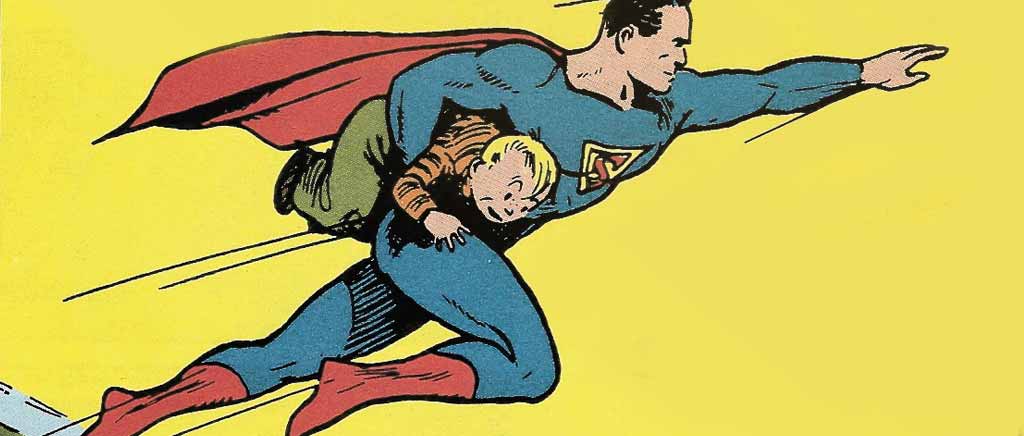Comics Squared
There are a number of books dealing with comic book history, but The Comic Book History Of Comics, by Fred Van Lente and Ryan Dunlavey, is, to my knowledge, the only one to tell the story as a comic itself. It does seem fitting--it's a medium that can do anything, its supporters claim, so why not this?
Told in 224 pages, the story relates much that will be familiar to fans. It starts with the beginning of the comic strip in 1896, followed by collections of strips published in book form. Then come various trends--superheroes, romance, horror, moral panic and the Comics Code, underground comix, graphic novels, manga and so on, up until today. Along the way, there are all the big names (often Jewish boys, some of whom changed their names)--Jerry Siegel, Joe Shuster, Will Eisner, Joe Simon, Jack Kirby, Stan Lee, Harvey Kurtzman, R. Crumb, Alan Moore, Art Spiegelman and many others.
What might be a surprise is the book concentrates less on the artistry of these people and more on the business side. There are times it reads more like a labor history or even a tale of capitalism, as the creative people fight against management over payment and licensing, and everyone struggles to make a profit--some becoming millionaires, others going broke. There's also a fair amount written about copyright law. I enjoyed this stuff, but I suppose some readers would prefer to know more about how Superman changed through the years.
The drawing is well-done, if not great, and gets the point across. The storytelling is, at times, a bit disjointed (sometimes going into surprising areas, such as a discussion of pop art and how it appropriated comics), but it is covering a lot of ground in very few words.
The book ends with the tricky financial situation of comics since the direct store boom ended about a quarter century ago. As happened more than once, a market opens up in some genre or style, publishers respond, there's a glut and everything falls apart. Right now the cost of a comic book is at an all-time high (even taking inflation into account) but the market isn't what it once was. Actually, fans today tend to get their stuff over the internet and through other electronic means--and often from pirates. Comics aren't going to die any time soon, but the market has changed so much it's hard to have any degree of confidence where things are going next.
But, as always, if someone can supply an entertaining mix of words and drawings, they'll find there's a market out there somewhere.



2 Comments:
Do they have a section on the switch from the small, brightly-colored gridlike panels printed on newspaper stock to the modern "artistic" dark asymmetrical drawings on glossy paper we have now. Its almost a completely different product and to old farts like me not nearly as enjoyable
That's a recent development they got over in the later pages dealing with the changing economics of the system. I agree, it's a change that didn't improve thing but did make them more expensive.
Post a Comment
<< Home